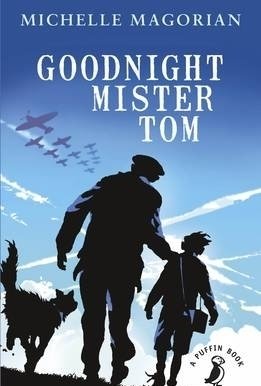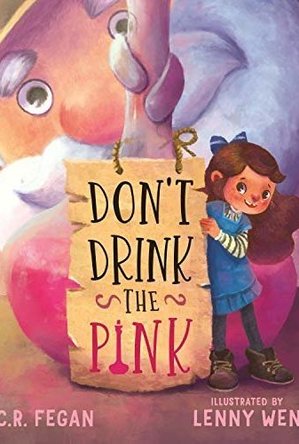
Incomplete Book of Dragons
Book
Long ago, the world was full of dragons. But what happened to them? Where are they now? These pages...
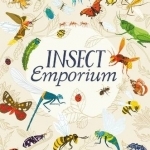
Insect Emporium
Book
Open up this treasure trove of insects and immerse yourself in a wondrous collection of creatures as...
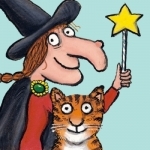
Room on the Broom Games
Education and Games
App
BAFTA NOMINATED GAME based on the No.1 Halloween children's picture book! **Perfect for 3 - 7 year...

123 Coloring Book for children age 1-10: Games free for Learn to write the Spanish numbers and words while coloring with each coloring pages
Games and Education
App
Write & Color Spanish numbers 123 numbers Coloring Book | Coloring Free Games for Kids Boy and Girls...
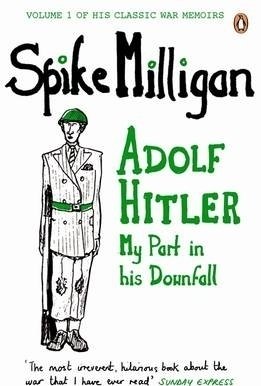
Adolf Hitler: My Part in His Downfall
Book
Adolf Hitler: My Part on His Downfall is volume One of Spike Milligan's outrageous, hilarious,...

Noah’s Ark – An Interactive Children’s Bible Tale
Book and Education
App
This is the classical biblical story of Noah and the ark he built upon God’s instruction to save...
The Bandersnatch (199 KP) rated Goodnight Mister Tom in Books
Nov 7, 2019
"Mister Tom", as William christens his new guardian, is reclusive and bad-tempered, and as such is avoided by the community. Willie lives with him as his Mother wants him to live with someone who is either religious or lives next to a church. Though initially distant, he is touched after discovering William's home-life and treats him with kindness and understanding, helping to educate him. Under his care, William begins to thrive, forming a small circle of friends at school among his classmates including fellow-evacuee Zach. He also becomes proficient in drawing and dramatics. As William is changed by Tom, so is Tom transformed by William's presence in his home. It is revealed that Tom lost his wife and baby son to Scarlatina some 40 years previously, and he has become reclusive because of this.
The growing bond between William and Tom is threatened when William's mother requests that the boy returns to her in the city, telling him she is sick. At first, William thinks this will be a good thing, as he can be helpful to his mother. However, his mother is not pleased to learn the details of his time with Tom, feeling that he has not been disciplined properly. While William has been away, she has become pregnant and had a girl, but is neglecting the baby. After a bad reunion, where his mother becomes furious upon learning the details of her son's life with Tom, abhorring his association with the Jewish Zach among other things, she hits William and puts him in the under-stairs cupboard, chains him to the piping. William regains consciousness briefly to find himself in the cupboard – he has been stripped of his clothes, minus his underwear, and his ankle is twisted. He quietly sobs for Tom, before he falls asleep.
Back in Little Weirwold, Tom has a premonition that something is not right with William. Although he has never travelled beyond his immediate locality, he ventures into London and eventually locates William's neighbourhood of Deptford and his home. He persuades a local policeman to break down the door of the apparently empty home, to be greeted with a vile stench. They find William in the closet with the baby, who had also been locked under the stairs by William's mother and has now died. William is malnourished and badly bruised as he had been locked under the stairs for a number of days. William is hospitalised, but whilst there suffers horrific nightmares and is drugged simply to prevent his screams from disturbing other children. Tom is warned that it is likely that William will be taken to a children's home, and, unable to observe William's distress any longer, kidnaps him from the hospital and takes him back to Little Weirwold.
Back with Mister Tom, William is much damaged by his ordeal and is also blaming himself for the death of his sister as he had not been able to provide enough milk to feed her whilst locked away, and becomes very depressed. Later, when his favourite teacher Annie Hartridge has a baby, William is shocked to learn from Zach that a woman cannot conceive a child on her own, and realises that his mother was having a relationship with a man, even though she had previously told him that it was wrong for unmarried couples to live together or have children together (something which society in general had regarded as unacceptable at this time). Tom is traced by the authorities, who have come to tell William that his mother is dead, having committed suicide. They also offer him a place in a children's home, as they've been unable to trace any other relatives who may have been able to take care of him. Luckily the authorities realise that William has already found a good home and allow Tom to adopt him.
Tom, William and Zach then enjoy a holiday at the seaside village of Salmouth, where they stay in the house of a widow whose sons have been sent out to war. Zach then receives news that his father has been injured by a German bomb in London and he hurries home on the next train saying farewell to all his friends. Unfortunately this is the last time they see him. William later learns that Zach has been killed and is grief-stricken for some time, but his grief is later healed by another recluse, Geoffery Sanderton. Geoffery, a young man who had lost a leg during the war and takes William for private art lessons,recognises the signs of grief and gives William a pipe to paint along with a picture of two smiling young men. One of the men is Geoffery and he tells William about the loss of his own best friend, the other man in the picture and the owner of the pipe. This is when William starts to come to terms with Zach's death. Adding to this, Doctor Little, the village doctor, who was Zach's guardian while he was evacuated, is surprised but pleased when William asks to have Zach's bike. Through learning to ride it, William realises that Zach lives on inside him and he will never forget his wonderful companion that Zach was.
In the months following, William grows closer to Carrie, one of his friends. One night, on returning home to Tom (whom he now calls "Dad"), he thinks back on how much he has changed since arriving in Little Weirwold and realises that he is growing.
Goodnight Mr Tom Wiki.
Goodnight Mr Tom was published by Kestrel in 1981 and later on in that same year in the US by Harper and Row. The book won Author Michelle Magorian the annual Guardian Children's fiction prize. Magorian was also a runner up for the Carnegie Medal. The book has been adapted as a Movie, a play and a musical. The most recent theatrical adaption won the Laurence Olivier award for Best Entertainment.
I came across the book when I was 10/11 years old. I needed the book for English at primary school, since we needed to read the book and complete a series of assignments for our teacher. I have in the subsequent years read and re-read the book. The book is rather good and I recommand it for children from the ages of 9/10 upwards. The book is a good representation of what happened during WW2 in a fictional setting. And William and Mr Tom healing each other from what they both experienced (Tom loosing family to Scarlatina and William being abused by his mother). I give the book an 8/10.

How To Train Your Dragon- Kids Book HD
Book and Entertainment
App
★ Oscar Nomination for Best Animated Film ★ Featured by Apple in "Staff Favorites" for 2010 ★...
Heather Cranmer (2721 KP) rated Don't Drink the Pink in Books
Jun 27, 2019
At the beginning of Don't Drink the Pink, we're introduced to Madeline on her first birthday where her Grandpa Gilderberry gives her a box of potions telling her not to drink the pink. On every birthday up to her fourteenth, she is allowed to have one potion as long as it isn't pink. These potions give Madeline special abilities. On her fifteenth birthday, Madeline is allowed to finally drink the pink potion. You'll just have to see what happens when Madeline finally is allowed to drink the pink potion. Just be sure to have your tissues ready because it is touching.
The plot for Don't Drink the Pink is definitely entertaining and sure to have children guessing at which ability Madeline will have next. It'll also keep children wondering if and when Madeline can drink the pink potion as well as what will happen when she does. This book uses rhyming language with the last word on every other sentence. I believe this makes the book more fun and will hold a child's attention more. One thing to note, a family member does die in the book which can be quite heavy for a small child. Don't Drink the Pink doesn't go into detail about the death. The wording just mentions that this certain character passed away. I do understand why the author included the death, but it does take away from the lightheartedness of the story. However, Don't Drink the Pink is a lovely story, and that shouldn't be a deal breaker.
Madeline and her grandfather are such sweet lovable characters. It was so endearing to see how close they were. I could feel the love between them coming off the pages. I just wanted to hug them both!
As for the illustrations, I read Don't Drink the Pink on my Kindle Paperwhite, so they were all in black and white which was a shame. The illustrations were drawn very well and were very adorable. The pictures were drawn in a way that a child would love. I just wish I could have had color to the illustrations because I bet with the colors, the illustrations look even more amazing! Another unfortunate circumstance of not being able to have colored illustrations on my Kindle was that my 4 year old wasn't as entertained. However, had we have had colored illustrations, I'm sure he would have loved this story! Kudos to Lenny Wen for his talent when it came to illustrating Don't Drink the Pink. He is definitely talented!
Overall, despite the mention of a character's passing, Don't Drink the Pink is a sweet story. The rhyming is fantastic, and it has a story line that will hold a child's and adult's attention. I would definitely recommend Don't Drink the Pink by B.C.R. Fegan to adults and children between the ages of 3 through 7 although older children may like this book as well.
--
(A special thank you to TaleBlade Press for providing me with an eBook of Don't Drink the Pink by B.C.R. Fegan in exchange for an honest and unbiased review.)

Kung Fu Panda Holiday Storybook
Book and Entertainment
App
★ Featured in "What's Hot" in the Apple App Store iStoryTime brings you Kung Fu Panda Holiday...
